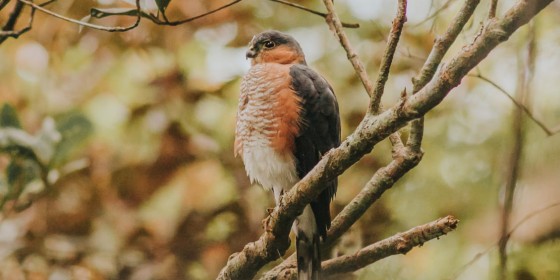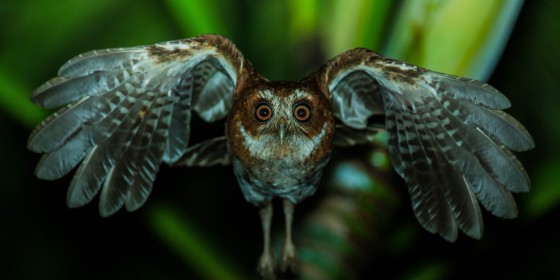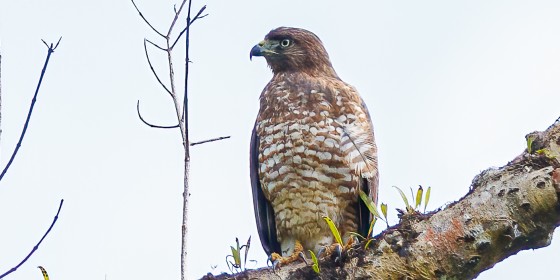Threats for the Puerto Rican Broad-winged Hawk are poorly understood. We know that parasitic nest flies are the leading cause of nest failure in several avian species with small and declining populations in the Caribbean region such as the endangered Puerto Rican Sharp-shinned Hawk and Ridgway’s Hawk. Our team has documented the presence of Philornis spp. larvae, commonly known as bot or nest flies, in two fledglings. It is likely these larvae infestations are also negatively affecting the productivity of this subspecies. Furthermore, it is known that tropical and island-dwelling species are ill-prepared to respond fast enough to changes in the landscape such as deforestation that limits connectivity, and for that reason make them more vulnerable to random events. Consequently, it opens the opportunity for more dominant and generalist species such as the Caribbean Red-tailed Hawk to take over. The Puerto Rican Broad-winged Hawk's low numbers of individuals, restricted distribution, potential low connectivity, specific habitat requirements, and high presence of Red-tailed Hawks make them vulnerable to further population decline.
Currently, there are no recovery efforts taking place to slow the decline of the Puerto Rican Broad-winged Hawk, and one of the reasons is the lack of definite and sufficient information on its island-wide distribution and threats. The Puerto Rico Department of Natural and Environmental Resources recognized this and approached us, The Peregrine Fund, to gather reliable information to further improve the conservation and management of this endangered raptor. With additional funding, our goal is to launch full conservation efforts similar to those we have established with the Puerto Rican Sharp-shinned Hawk that will help us develop a recovery strategy to assist the Puerto Rican Broad-winged Hawk population.





